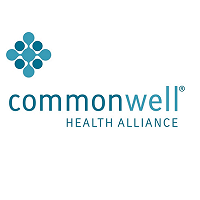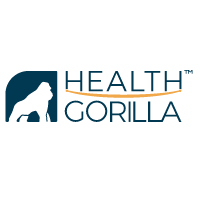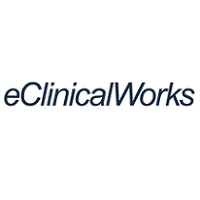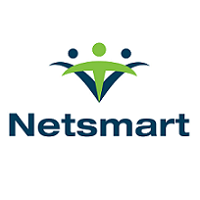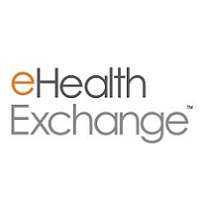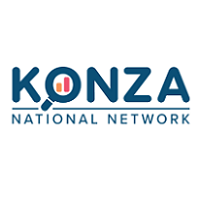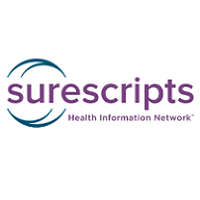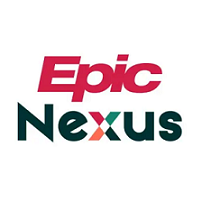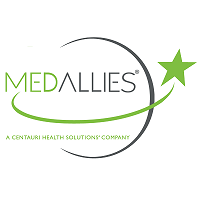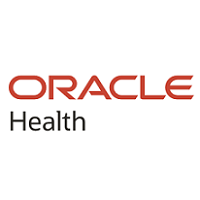We are now well past the 21 year mark in our quest for healthcare interoperability. Under an executive order from president G W Bush (April 2004), the ONC was established and Dr. David Brailer was dubbed “America’s first Health Information Czar.” The Meaningful Use program was then born out of the HITECH Act and Merit-Based Incentive Payment System out of the MACRA legislation. And then information sharing from the CURES Act. And then the release of Trusted Exchange Framework and the Common Agreement (TEFCA). And now the CMS Interoperability Framework. All trying to move our healthcare system to the digital age, better outcomes, controlling and reducing costs, and patient access to their health data. It has not been an easy road and the debate of the journey will never end.
Industry and Contract News
KONZA Health HIE Portal Transitioning to KONZA Health Gateway and Gateway Plus
KONZA Health is enhancing how partners connect with their data through the KONZA Health Gateway and KONZA Health Gateway Plus. These new environments will fully replace the current CareAlign system, offering a more modern, secure, and user-friendly way to access health information. They provide streamlined access, improved clarity, and a seamless user experience while maintaining trusted interoperability standards. Keep an eye out for future communications with helpful resources and updates as we continue improving your access experience.
Consortium for State and Regional Interoperability Launches Health Data Utility Capability Model
The Consortium for State and Regional Interoperability (CSRI), a collection of the nation’s largest and most robust nonprofit health data networks, announced the release of their new Health Data Utility (HDU) Capability Model. This model establishes a method for describing and standardizing what an HDU can consistently deliver at scale that is outcomes-oriented, evidence-based, and stakeholder-specific, mapping capabilities to the distinct needs of providers, public health agencies, Medicaid and other state programs, payers, researchers, and patients. The model is available at www.thecsri.org to the public at no cost.
eClinicalWorks and Sunoh.ai Assist 75-Provider FQHC Reduce Provider Burnout and Enhance Patient Care
eClinicalWorks®, the largest ambulatory cloud EHR, announced the successful integration of Sunoh.ai, the EHR-agnostic AI medical scribe across Florida-based Suncoast Community Health Centers locations. The AI medical transcription software, fully integrated with the eClinicalWorks EHR, works silently in the background during patient visits, yielding significant efficiencies in patient care and reducing provider burnout. Sunoh.ai’s offers a multilingual capability, proficiently summarizing patient-provider conservations in English, Spanish, and Portuguese.
Louisiana Health Systems Launch MyChart Central Statewide, Enabling a Unified Patient Experience Across Organizations
Healthcare organizations across Louisiana joined forces on the first statewide launch of MyChart Central, giving patients a single, secure way to access their medical records, communicate with care teams, and manage their care.
Redox and Kno2 Form Strategic Alliance to Transform Healthcare Data Exchange Nationwide
Redox, an interoperability company powering flexible data exchange in real-time, and Kno2, the company leading the future of healthcare communication and a federally designated Qualified Health Information Network (QHIN), announced a strategic alliance that solves healthcare’s dual challenge of moving clinical data at scale between the major healthcare networks and systems as well as making it instantly usable.
Netsmart Launches AlphaCoding, AI-Powered Coding Tool with Embedded Coding Assistant
Netsmart, a provider of healthcare IT for post-acute and human services providers, announces the launch of AlphaCoding, an augmented intelligence (AI) solution designed to help transform clinical coding by driving accuracy, efficiency and compliance. Built on advanced AI models and guided by Centers for Medicare & Medicaid Services (CMS) standards, AlphaCoding delivers near real-time, evidence-based coding recommendations to support healthcare professionals across care settings.
Spotlight on Community Networks
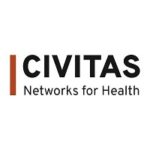 The Network for Regional Healthcare Improvement (NRHI) and the Strategic Health Information Exchange Collaborative (SHIEC) announced a formal affiliation between the two organizations to form a new organization named Civitas Networks for Health. The organization serves as a platform for local nonprofit health collaboratives and health information exchanges to grow and thrive. Read their latest news. Follow them @civitas4health.
The Network for Regional Healthcare Improvement (NRHI) and the Strategic Health Information Exchange Collaborative (SHIEC) announced a formal affiliation between the two organizations to form a new organization named Civitas Networks for Health. The organization serves as a platform for local nonprofit health collaboratives and health information exchanges to grow and thrive. Read their latest news. Follow them @civitas4health.
Civitas Networks for Health® and Its Members Uniquely Poised to Support States in Transforming Rural Health Care Through New Federal Program
Civitas Networks for Health® announced its readiness to help states implement the newly launched Rural Health Transformation Program (RHT), a $50 billion federal initiative aimed at reimagining care delivery in rural communities across the country.
State HIE News
GaHIN Advances Whole-Person Care with New Statewide Connections
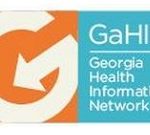 At the end of October, GaHIN reached another major milestone in the Social Care Integration Initiative as five Georgia Department of Behavioral Health and Developmental Disabilities (DBHDD) Inpatient Facilities (Georgia Regional Hospital (GRHA) – Atlanta , Central State Hospital (CSH) – Milledgeville, West Central Regional Hospital – Columbus, Georgia Regional Hospital – Savannah, and East Central Regional Hospital – Augusta & Gracewood) and the first of Claratel Behavioral Health (Claratel) went live on the GaHIN network.
At the end of October, GaHIN reached another major milestone in the Social Care Integration Initiative as five Georgia Department of Behavioral Health and Developmental Disabilities (DBHDD) Inpatient Facilities (Georgia Regional Hospital (GRHA) – Atlanta , Central State Hospital (CSH) – Milledgeville, West Central Regional Hospital – Columbus, Georgia Regional Hospital – Savannah, and East Central Regional Hospital – Augusta & Gracewood) and the first of Claratel Behavioral Health (Claratel) went live on the GaHIN network.
Manifest MedEx and SCHIO Announce Strategic Affiliation To Connect California and Advance Statewide Health and Social Services Data Infrastructure
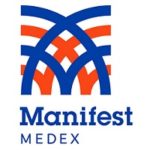 Manifest MedEx (MX) and Serving Communities Health Information Organization (SCHIO), two of California’s most respected nonprofit health data networks and Data Exchange Framework (DxF) Qualified Health Information Organizations (QHIOs) announced that they have entered a strategic affiliation, with SCHIO becoming an affiliate of MX.
Manifest MedEx (MX) and Serving Communities Health Information Organization (SCHIO), two of California’s most respected nonprofit health data networks and Data Exchange Framework (DxF) Qualified Health Information Organizations (QHIOs) announced that they have entered a strategic affiliation, with SCHIO becoming an affiliate of MX.
Hires and Openings
eHealth Exchange
Active in all 50 states, the eHealth Exchange is the largest query-based, health information network in the country. It is the principal network that connects federal agencies and non-federal organizations, allowing them to work together to improve patient care and public health. They have an open positions for:
Delaware Health Information Network
Delaware Health Information Network (DHIN) was the first live, statewide health information exchange in the nation. Launched in 2007, today it serves all of Delaware’s acute care hospitals and nearly 100% of the state’s medical providers. More than 14 million clinical results and reports are delivered through DHIN each year. There are over three million unique patients with results on DHIN, including patients from all 50 states. DHIN shares real-time clinical information to improve patient outcomes, eliminate the duplication of services and reduce the cost of healthcare. Check out their current opening for Contracts and Compliance Counsel.
healthEconnect Alaska
Hiring: Healthcare Engagement Specialist – healthEconnect Alaska is seeking an experienced healthcare professional who thrives on building relationships, supporting others, and driving healthcare efficiency. If you have at least five years of professional healthcare experience, a strong understanding of healthcare workflows, and a passion for whole-person care, they want to hear from you. View more information about the position.
Contexture
Contexture is a nonprofit organization that provides strategic, technical and administrative support to communities committed to advancing health through information sharing. As the leading health information exchange for Arizona and Colorado, Contexture is the largest health information organization in the western region. Check out their current openings.
Common Ground Health
Common Ground Health Seeking New CEO – The Chief Executive Officer (CEO) provides strategic, inclusive leadership and operational oversight for the new entity, ensuring the organization fulfills its mission of improving community health and health equity through collaboration, data, and innovation while maintaining financial sustainability and community impact. The CEO is a trusted and collaborative leader who values the rich experience of the team. Reporting to the Board of Directors, the CEO is responsible for translating organizational vision into measurable results, cultivating key partnerships, securing funding, and building a high-performing team in a culture grounded in integrity, compassion, and shared purpose. Learn more & apply today.
VITL
VITL is passionate about improving health care for Vermonters. They are a mission-driven nonprofit that connects health care data across the state. VITL is where the health care and technology sectors meet. Their network facilitates the secure exchange of real-time information and makes it possible for providers to get the information they need to provide excellent health care for Vermonters. They have the following openings:
- HL7 Interoperability Engineer
- Business Analyst – Health Information Exchange (HIE) Platform Upgrade
CIVHC (Center for Improving Value in Health Care)
CIVHC (Center for Improving Value in Health Care) is seeking a Director of Evaluation, Innovation, and Research to join their senior leadership team. This Denver-based role will lead a dynamic team in designing impactful health care evaluation projects and driving data-informed transformation using the Colorado All Payer Claims Database (CO APCD).
Upcoming Events
eHealth Exchange 2025 Annual Meeting
When: November 18, 2025
Where: Nashville, TN
Event Page
Register for this event.
Event hashtag: #eHx25
eHealth Exchange is pleased to host their 2025 in-person Annual Meeting this November in Nashville, Tennessee, the home of country music, bluegrass, R&B and other genres. This annual event is a must-attend gathering of health IT interoperability experts.
It is expected to draw more than 150 attendees including public health and federal agencies, health systems, physicians, regional and state health information exchanges, payers, as well as their eHealth Exchange Validated Vendors who support them. While their Annual Meeting is widely attended by eHealth Exchange participants, all are welcome!
ONC's Cures Act Final Rule
In May of 2020 the 21st Century Cures Act: Interoperability, Information Blocking, and the ONC Health IT Certification Program released by the ONC and published in the Federal Register.
The TEFCA Players
ONC Recognized Coordinating Entity (RCE)
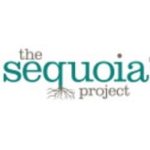 The Recognized Coordinating Entity (RCE) – The Sequoia Project (@sequoiaproject)is responsible for developing, implementing, and maintaining the Common Agreement component of the Trusted Exchange Framework and Common Agreement (TEFCA). The Common Agreement is the baseline technical and legal requirements for health information networks to share electronic health information and is part of the 21st Century Cures Act (Cures Act).
The Recognized Coordinating Entity (RCE) – The Sequoia Project (@sequoiaproject)is responsible for developing, implementing, and maintaining the Common Agreement component of the Trusted Exchange Framework and Common Agreement (TEFCA). The Common Agreement is the baseline technical and legal requirements for health information networks to share electronic health information and is part of the 21st Century Cures Act (Cures Act).
In addition they will collaborate with ONC to designate and monitor Qualified Health Information Networks (QHIN), modify and update an accompanying QHIN Technical Framework, engage with stakeholders through virtual public listening sessions, adjudicate noncompliance with the Common Agreement, and propose sustainability strategies to support TEFCA beyond the cooperative agreement’s period of performance.
On August 28, 2023, the ONC awarded The Sequoia Project 5-Year TEFCA RCE Contract to continue their services.
RCE Resource Library – which includes a guide to the Common Agreement, Standard Operating Procedures (SOPs), technical documents, and other resources that make up TEFCA’s rules of the road. Start your journey to next generation interoperability here.
The Sequoia Project Addresses Health Data Information Sharing with Educational Toolkit – The Sequoia Project released an informational and educational toolkit to support providers, health IT developers, health information networks and exchanges, and the greater healthcare community’s commitment to compliance with the federal Information Blocking Rule (IBR).
The Sequoia Project Releases Data Usability Guide Version 2.0 – The Sequoia Project announced the release of the Data Usability Implementation Guide Version 2.0 created by its Interoperability Matters Data Usability Workgroup (DUWG). This resource covers the identified priority use cases that can be readily adopted within health information exchange vendors, implementers, networks, governance frameworks, and testing programs within 18 months.
The Sequoia Project Publishes State of Consent Capabilities – The Sequoia Project published Moving Toward Computable Consent: A Landscape Review for public feedback. This whitepaper explains the importance of managing privacy and consent when sharing personal health information, scans the current landscape of challenges facing those entrusted with personal health information, enumerates existing solutions, and explores the strengths and deficiencies of these approaches.
Designated QHINs as of February 2024
Candidate QHINs
Organizations that have completed the Qualified Health Information Network® (QHIN™) application and have been accepted into the project planning and testing phase of the on boarding and designation process.
Interoperability Market
According to research by Grand View Research, the global healthcare interoperability solutions market size was estimated at USD 3.42 billion in 2023 and is projected to grow at a compound annual growth rate (CAGR) of 14.15% from 2024 to 2030. An increase in the adoption of interoperability solutions by healthcare authorities, a rise in investments to enhance healthcare facilities, favorable government initiatives to improve patient care, high government funding, and a focus on patient-centric care are some major factors propelling the market growth. In February 2023, the federal government provided USD 505 million to federal data partners and Canada Health Infoway to advance digital health tools and an interoperability roadmap. Thus, the rising investments and funding from government bodies are anticipated to drive the industry growth.

